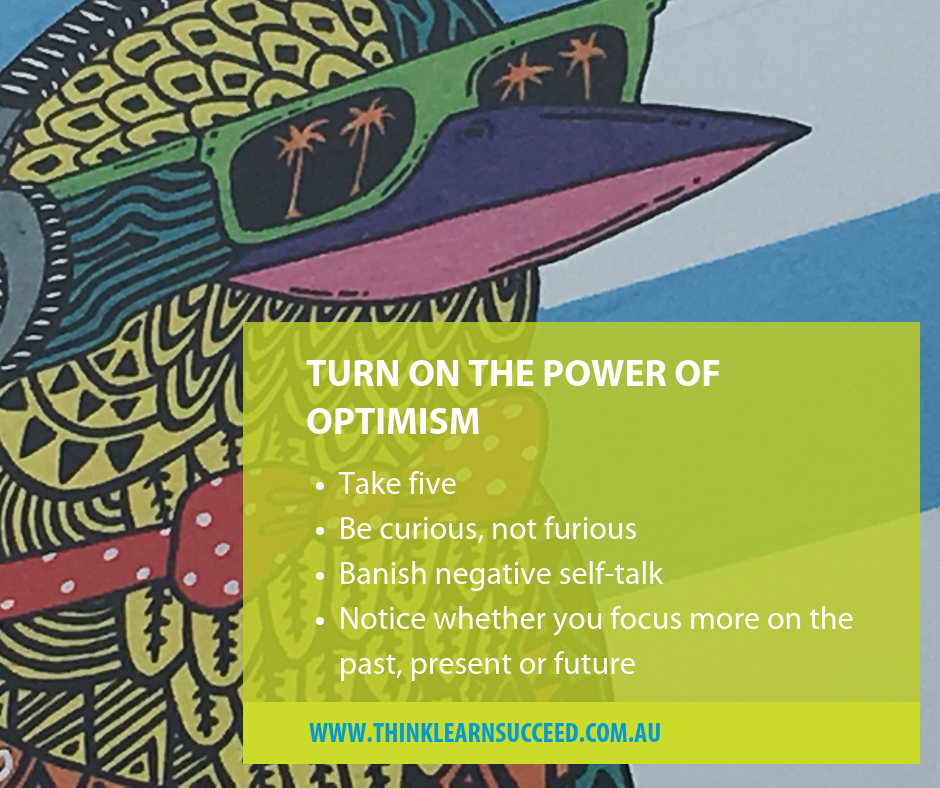 Employees who come into work feeling negative find it hard to be creative, their interactions with colleagues are strained and productivity is low. But when they come into work with positivity, they see possibilities and opportunities everywhere. This is why Human Resources teams need to take feelings seriously.
Employees who come into work feeling negative find it hard to be creative, their interactions with colleagues are strained and productivity is low. But when they come into work with positivity, they see possibilities and opportunities everywhere. This is why Human Resources teams need to take feelings seriously.
In Four surprising benefits of positive emotions, I explained that positive emotions play a huge role in human survival. This is because:
- Unpleasant emotions help people survive, but they also limit their thought-action repertoires
- Positive emotions broaden the ability to think and act in new ways
- Positive emotions help individuals build resources for dealing with tough times
- Feeling good might contribute to longevity
In organisations, there are many additional benefits of drawing on high-energy, positive feelings. Learning and development and specialists can plan important roles in bringing these benefits to life in their organisations. Here are some tips on how to do this.
Include modules on learned optimism in your management development and leadership programs
A flourishing culture needs to be supported by positive mindsets. These start at the top. Everyday communication transactions are influenced by the ways that managers and leaders think. This means that promoting the skill sets of learned optimism has a direct impact on workplace behavioural norms and culture. Train your managers in the art of thinking – and communicating – optimistically.
Educate your workforce on the benefits of adopting a growth mindset
Teach senior personnel how to coach and enable on-the-job learning. More importantly, provide everyone with access to simple tools and resources. Learning how to learn can be life-changing. Teach simple models to help people reflect and learn from their experiences. For example, the experiential learning model can be chunked back to three key questions that you can teach everyone to use in your business. These questions are: what, so what and now what. Contact positive psychology trainer Eleanor Shakiba if you would like help running training in this area.
Discourage busy talk
It’s a scene played out in many businesses every day. Two professionals meet each other in the corridor or tearoom. ‘How are you?’ the first asks. ‘Busy,’ replies the second. This is a classic example of the busyness trap. In many organisations, people assume that being busy shows they are successful. In fact, many positive psychology researchers have shown that constantly being busy undermines the cognitive skills you need to be effective at work. For example, both problem-solving and decision-making skills are reduced when you’re overloaded or stressed. If everyone is bragging about how much they’ve got on their plate at the moment, it’s unlikely that creativity levels will be high. So, encourage people to stop and savour positive moments.
Read Mihály Csíkszentmihályi’s book Flow
Flow is a classic book from positive psychology. Every HR practitioner and L&D professional should read it. It’s a great introduction to what generates flow states. It contains numerous tips that you can use to build a positive workplace culture. Remember that flow states happen when people are engaged in work that they love. Your employees need to be focused and goal-oriented, with enough time pressure to increase motivation — but not so much that they become stressed or dysfunctional.
The bottom line is simple. Pleasant emotions don’t just feel good. They help people work collaboratively and creatively. They lower stress levels and build resourcefulness. So if your business is not experiencing enough of those qualities, it’s time to put the ‘broaden and build’ theory to use.
About the author of this article
Eleanor Shakiba is a positive psychology trainer and coach. She consults to a range of sectors – including higher education, health, finance and local government – in the development of social and emotional intelligence at work. Eleanor has been running training and coaching sessions for people in high-intellect professions since 1994. Find out how Eleanor can help you or your team here.